On the power of divisors
Let N be a positive integer having at least 4 positive divisors.
Denote d 1 , d 2 , d 3 , d 4 as the smallest positive divisors of N .
Also, let k ≥ 2 be a positive integer such that N = d 1 k + d 2 k + d 3 k + d 4 k .
If q = 2 k + 1 is a prime, what is v q ( N − q ) ?
Note: v p ( n ) denotes the largest power of p dividing n .
This section requires Javascript.
You are seeing this because something didn't load right. We suggest you, (a) try
refreshing the page, (b) enabling javascript if it is disabled on your browser and,
finally, (c)
loading the
non-javascript version of this page
. We're sorry about the hassle.
2 solutions
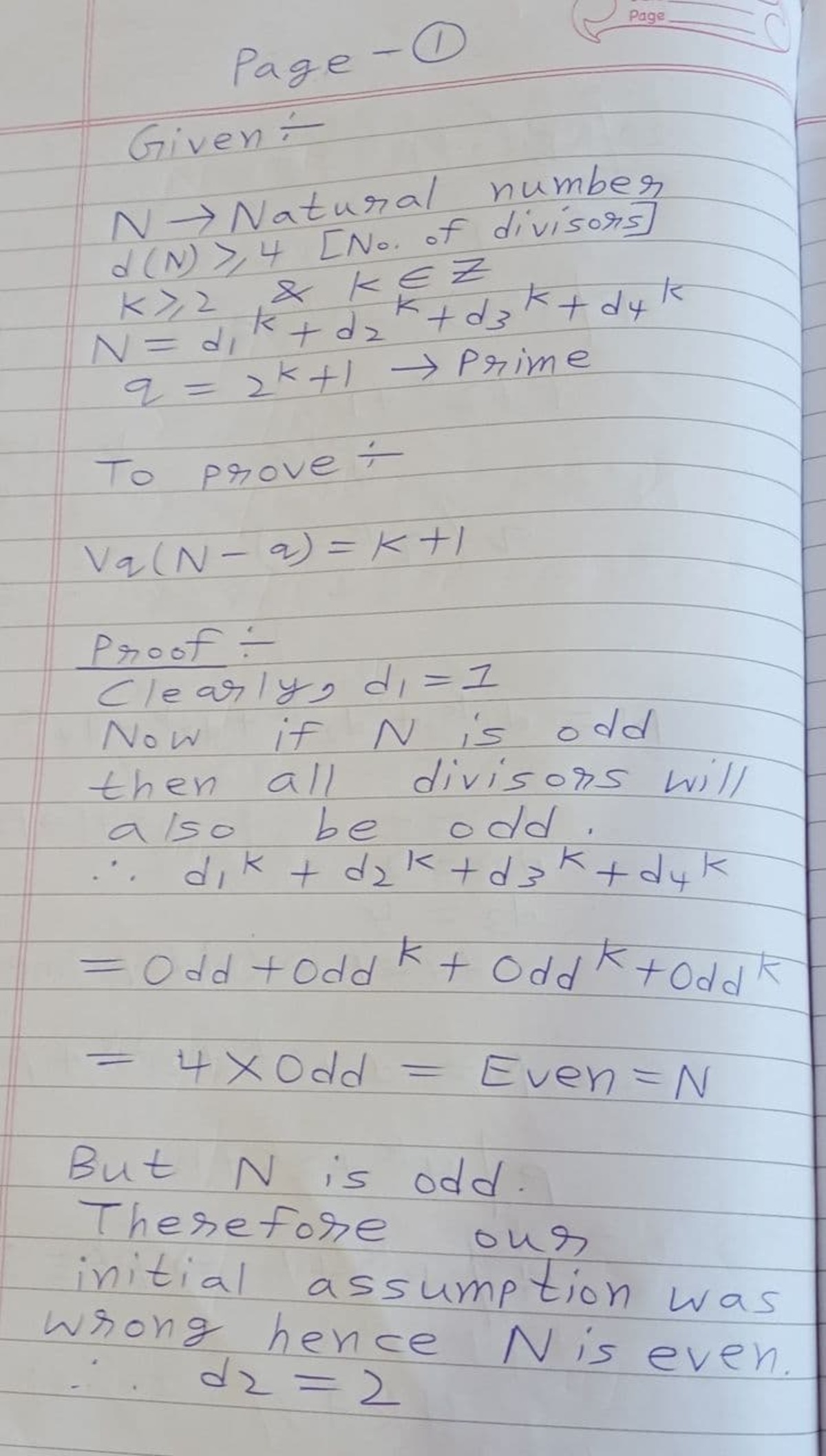
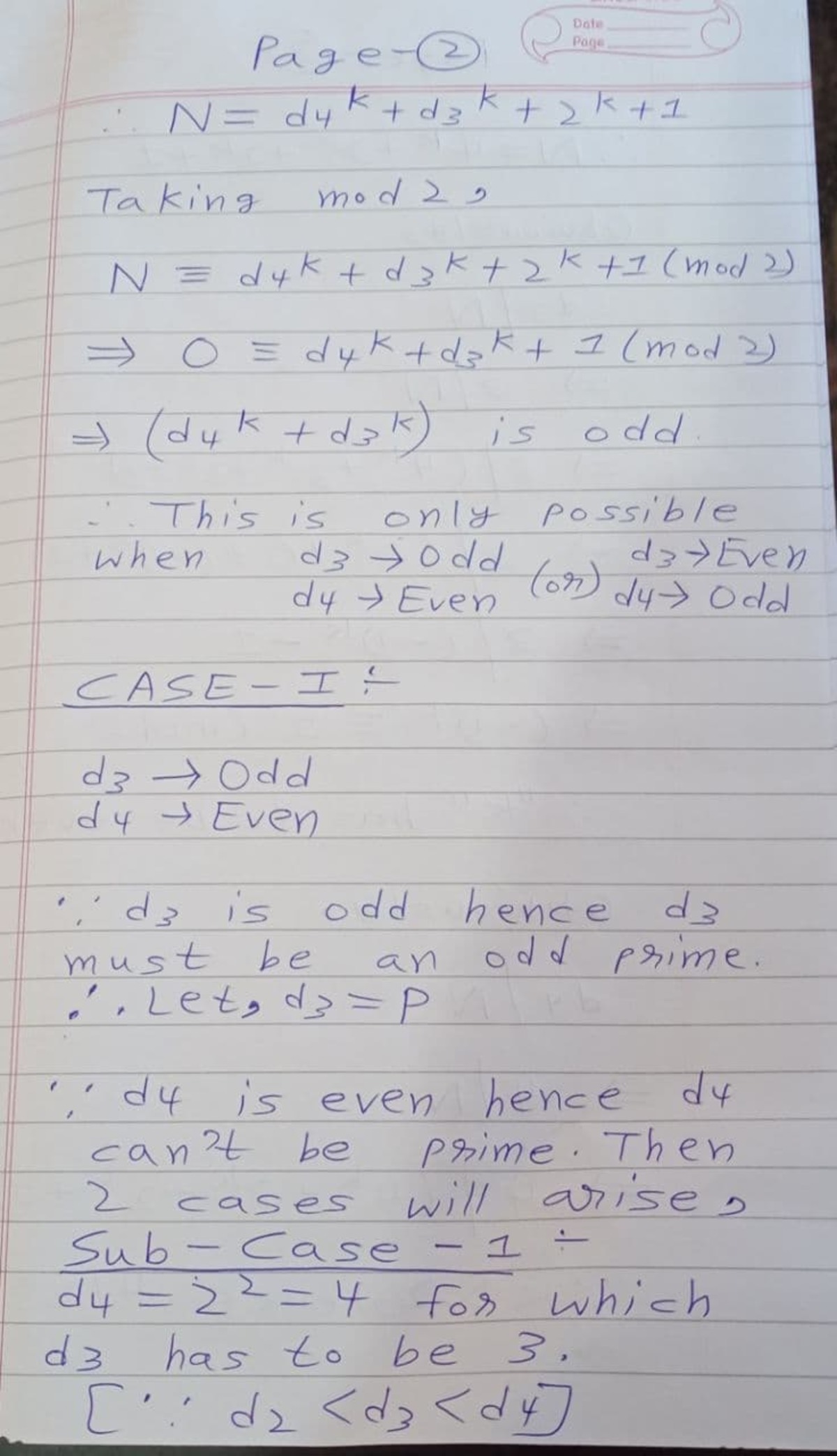
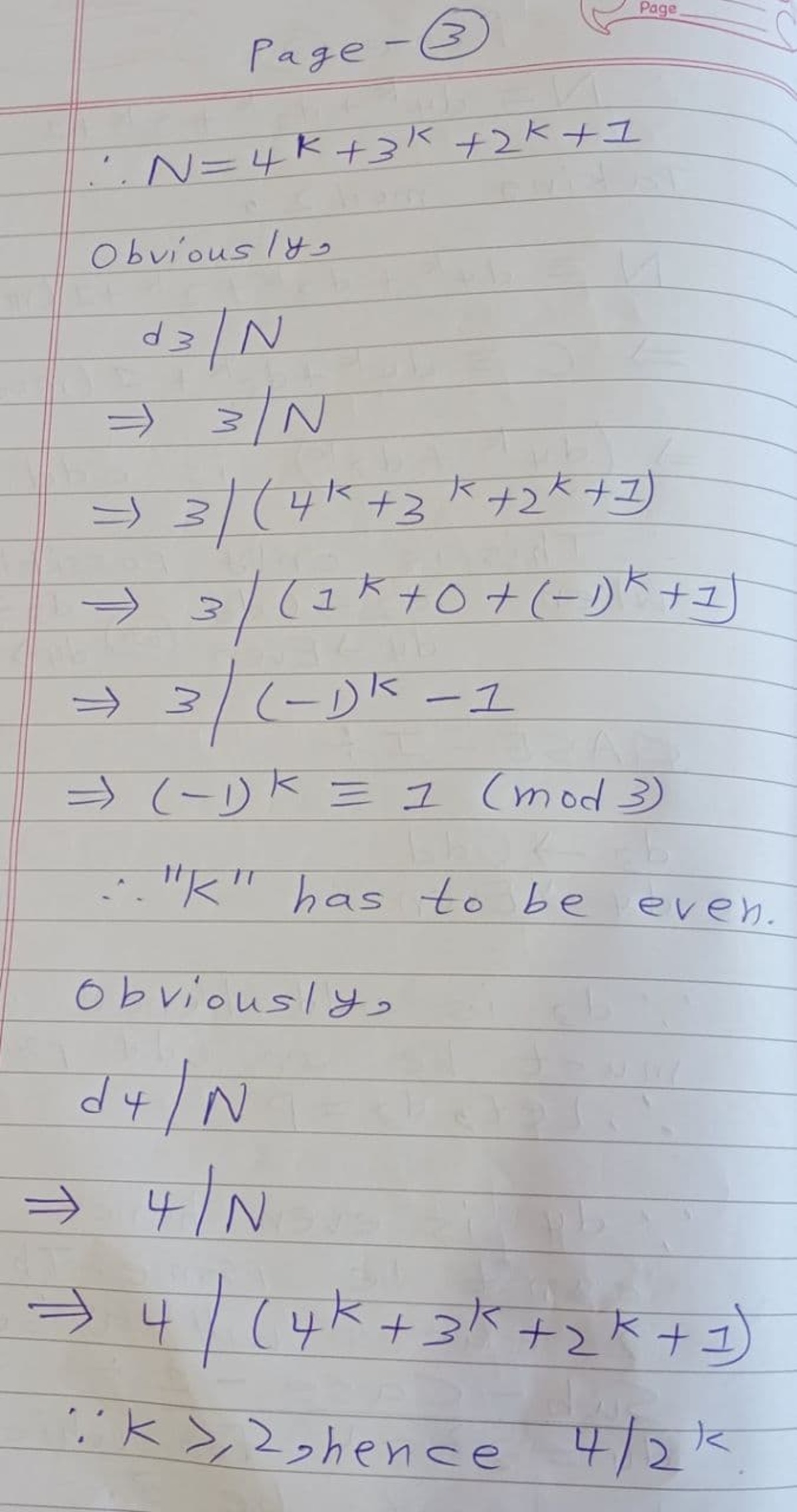
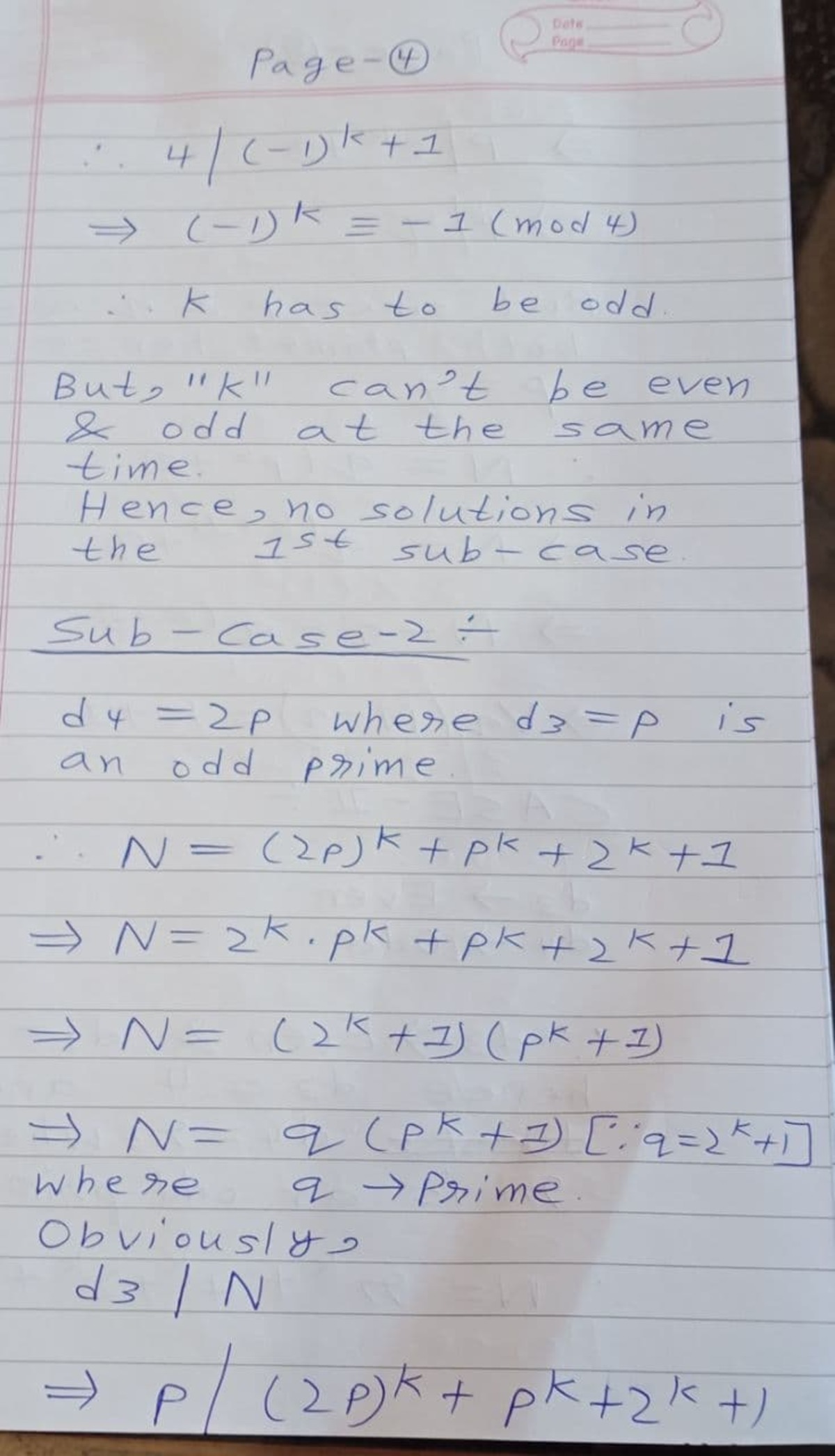
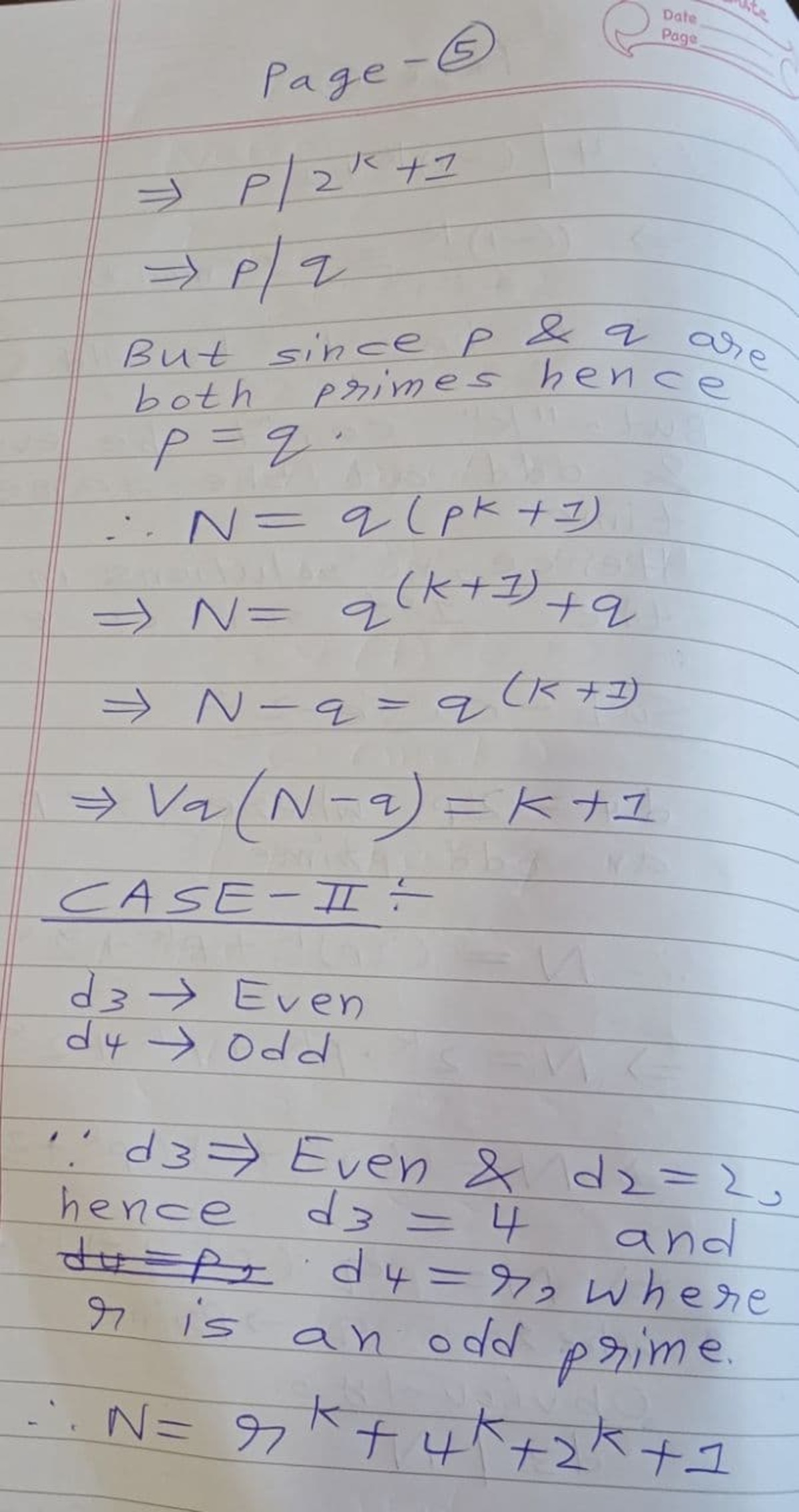
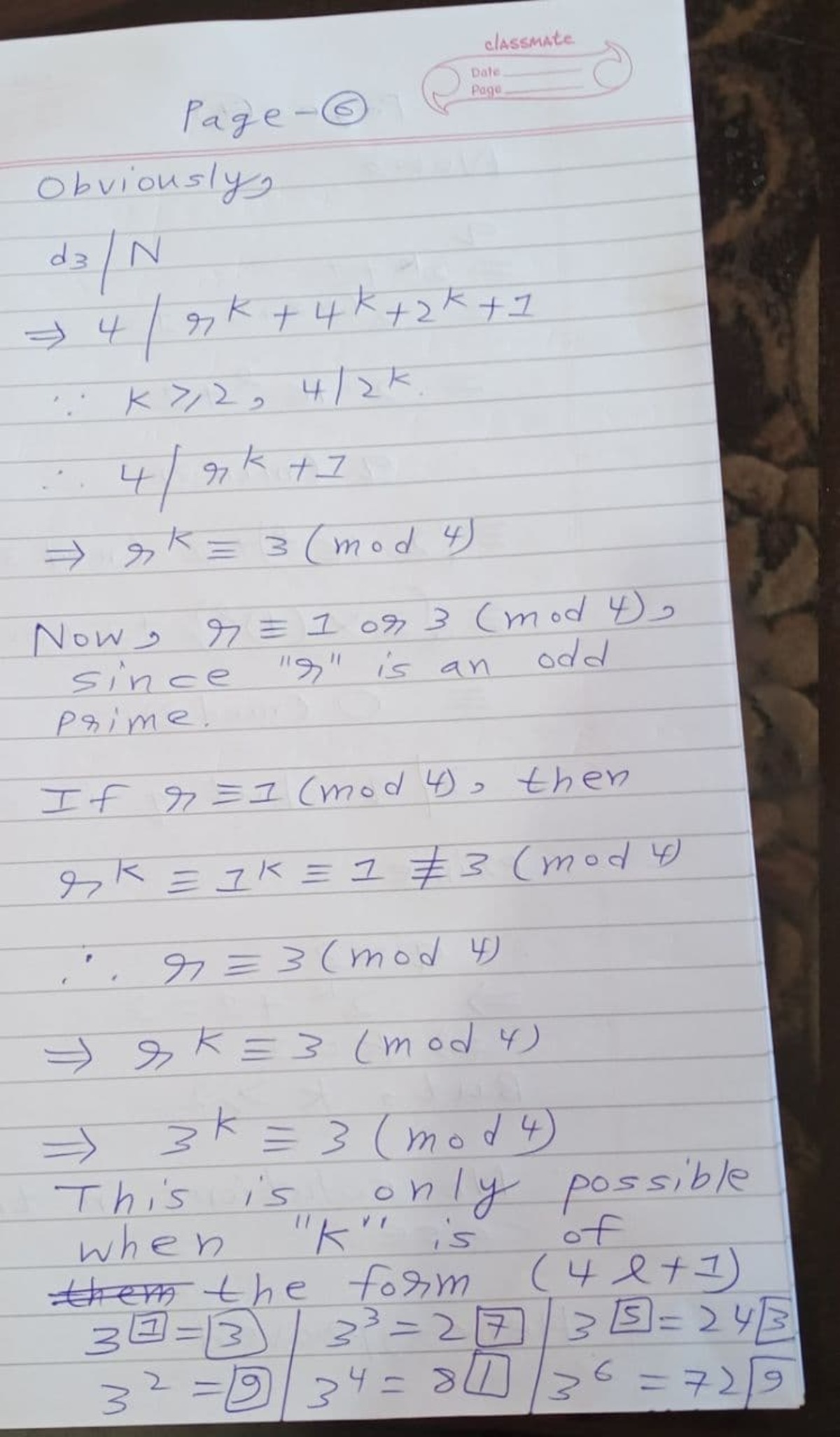
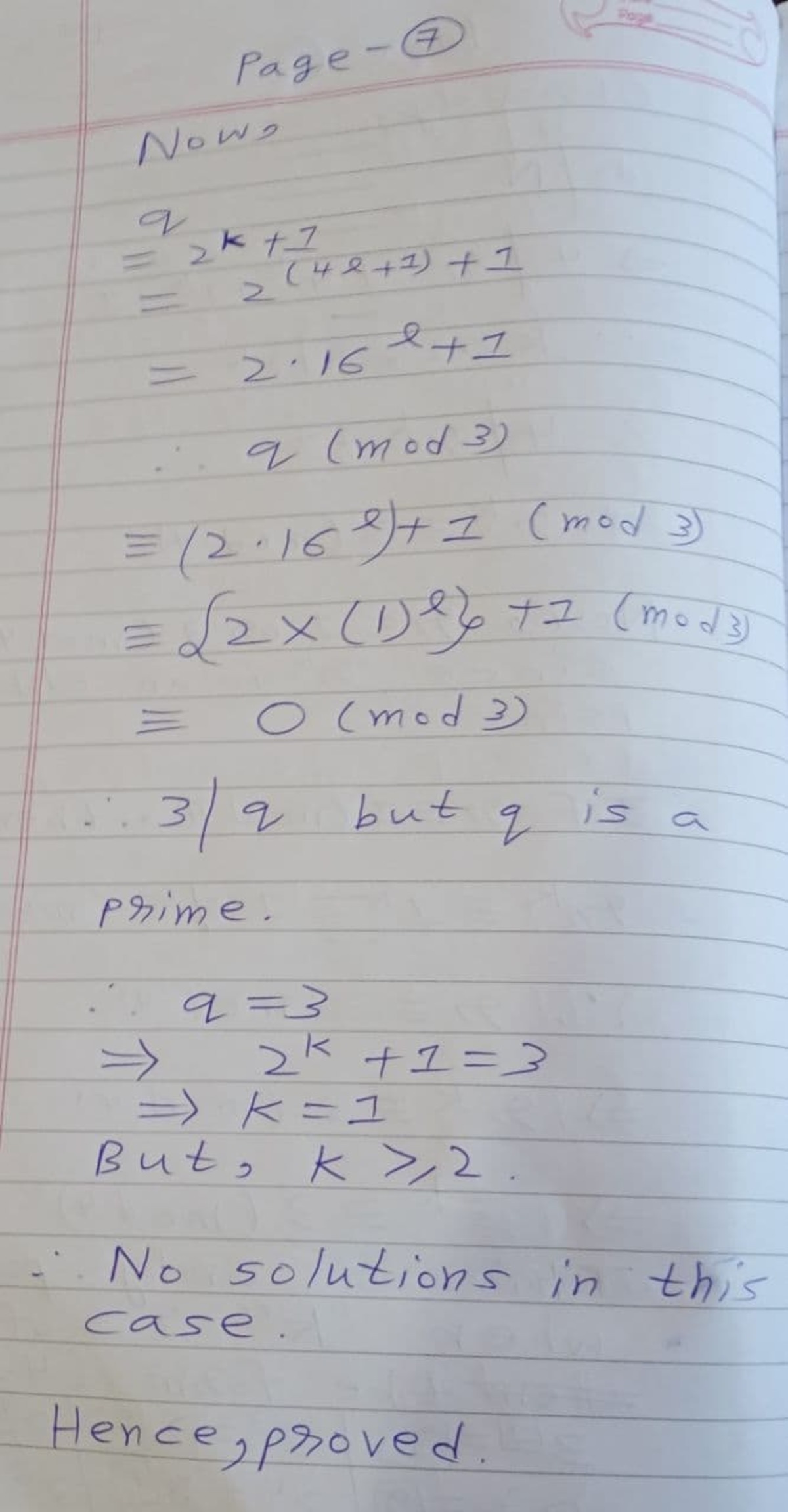
Fantastic work! Interesting problem and a really good write-up.
One thing that would make your final casework (Case II) a little shorter is to observe that if k ≥ 2 and q = 2 k + 1 is prime, k must be even (in fact, k must be a power of 2 ); for if not, then k has an odd prime factor, say P , and q = 2 a P + 1 = ( 2 a ) P + 1 which is divisible by 2 a + 1 (these are Fermat primes.)
As soon as you reach (in your solution) r k ≡ 3 ( m o d 4 ) , you can stop, because this is impossible for even k .
One other point is that solutions do exist - the smallest is N = 1 3 0 ; the next, corresponding to k = 4 , is N = 1 4 1 9 8 7 4 .
Log in to reply
Thank you for the compliment ! And I really liked your approach for Case - 2 And thanks for making me aware about Fermat primes 😀 And another thing , can you find an upper bound for the number of divisors of N ?
Log in to reply
That's an interesting followup. The lazy answer is "yes, sort of"; there are only four known Fermat primes, so there are only four known such N , of which one will have the most divisors.
Interestingly, k = 8 , q = 2 5 7 doesn't work; the N generated has another odd prime factor less than 2 5 7 .
The other possibilities do all work; we have
| k | q | N | Prime factorisation | # divisors |
| 2 | 5 | 1 3 0 | 2 ⋅ 5 ⋅ 1 3 | 8 |
| 4 | 1 7 | 1 4 1 9 8 7 4 | 2 ⋅ 1 7 ⋅ 4 1 7 6 1 | 8 |
| 1 6 | 6 5 5 3 7 | ≈ 7 . 6 × 1 0 8 1 | 2 ⋅ 6 5 5 3 7 ⋯ ( 7 prime factors) | 1 2 8 |
So the largest number of divisors of the N we know about is 1 2 8 .
It's thought that 6 5 5 3 7 is the largest Fermat prime; but not yet proven, so there may be ridiculously big N that work with perhaps more divisors.
Suppose that d 1 < d 2 < d 3 < d 4 . We must have d 1 = 1 . If d 1 , d 2 , d 3 , d 4 were all odd, N = d 1 k + d 2 k + d 3 k + d 4 k would be even, which make d 2 = 2 , which is a contradiction. Thus at least one of d 1 , d 2 , d 3 , d 4 is even, so N is even, and hence d 2 = 2 . One of d 3 , d 4 must be even, and the other must be odd.
If d 3 is even, we must have d 3 = 4 and d 4 = p > 4 an odd prime. But then 4 q divides N = 1 + 2 k + 4 k + p k , and hence p k ≡ − 1 ( m o d 4 ) . Since q = 2 k + 1 is prime, k is a power of 2 , and hence is even. Since n 2 ≡ 1 ( m o d 4 ) for any odd number n , it follows that p k ≡ 1 ( m o d 4 ) . Hence this case is impossible.
Thus d 3 = p is odd, so we must have p prime and d 4 = 2 p . But then N = ( 1 + 2 k ) ( 1 + p k ) = q ( 1 + p k ) is a multiple of 2 p , and hence p divides ( 1 + p k ) q . Thus p divides q , and hence N = q k + 1 + q , so that N − q = q k + 1 , and hence q has index k + 1 in N − q .